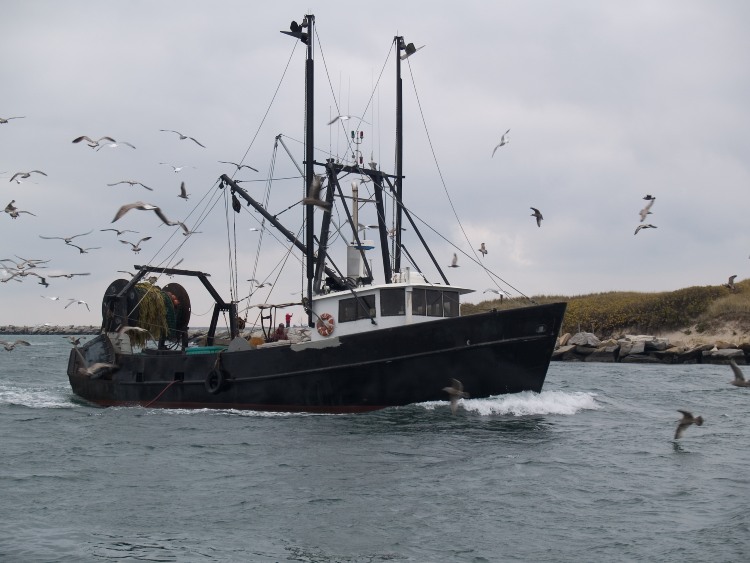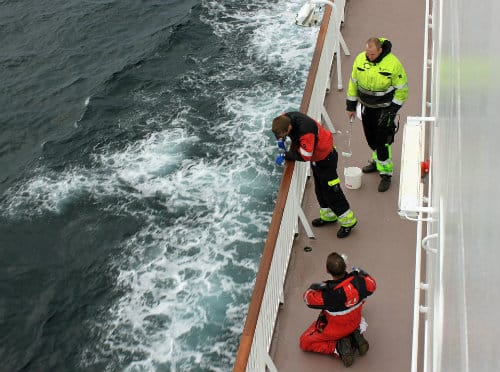If you’ve recently been injured in an offshore work accident, you may have several questions:
Consider meeting with an experienced offshore accident lawyer who can answer your work injury concerns.
All across America’s numerous waterways, various maritime employees work together to form a workforce that helps power our economy.
From the Northeastern ports in Pennsylvania, New York, and New Jersey to the Gulf of Mexico and on rivers and lakes in between, these workers are forced to undergo hazardous working conditions. This type of work is also physically demanding.
Because of the hazardous and physical nature of this line of work, maritime workers often suffer serious injuries while on the job.
If you’ve recently been injured while working on a sea vessel or in a port, dock, harbor, or other maritime settings, it’s important to know your rights. However, filing a claim for maritime injuries is often more complex than land-based workers’ compensation claims.
These accidents and injuries are governed by a complex set of statutes known as maritime law. There are numerous routes to compensation for personal injury in the maritime industry, and the right route for you depends on the nature of your injury, your work duties, and other factors.

The dynamic settings in which workers of the maritime industry toil day-in and day-out can make for a wide variety of injuries; that is, in the instances where a maritime accident doesn't result in death.
Some of the most common types of maritime injuries include:
The types of personal injury resulting from maritime accidents will have a significant impact on the amount of compensation that may be attained via a claim. This is largely due to the fact that compensation is calculated from costs incurred as a result of maritime accidents.
Yet, the type of maritime worker claim that is filed in a specific case depends less on a worker's injuries and more on the nature of their work. In the next section, we briefly cover the three types of claims, all of which rely on key pieces of legislation: the Jones Act, the Longshore and Harbor Workers’ Compensation Act, and the Death on the High Seas Act.
Depending on your classification as a worker, you may be eligible for one of the following forms of compensation:
Seamen, crew members, and other workers who spend at least 30% of their work hours in the service of a vessel can hold their employers liable when negligence contributes to a work injury, under the Jones Act.
Maritime workers in docks, harbors, ports, and other on-shore maritime work settings are not covered under the Jones Act but can recover compensation for injury-related expenses in an LHWCA claim.
When a fatal accident occurs due to negligence more than 3 miles off the coast of US territory, surviving families can recover financial compensation in a DOSHA claim.
In order to file a Jones Act claim, you must meet the Act’s definition of a “seaman”.
Any crew member who spends at least 30% of their work hours on board or in the service of a vessel on navigable waters is covered under the Jones Act. Ship crew members, commercial fishermen, oil rig workers, cruise ship employees, and other workers on navigable waters are all covered under the Jones Act.
This Act provides automatic no-fault benefits for any work-related injury or illness.
Similar to what you’d receive in a land-based workers’ comp claim, maintenance and cure benefits provide financial compensation for medical expenses and necessary daily living expenses, such as rent and groceries. Since maritime workers generally are not covered under workers’ comp, receiving your maintenance and care benefits is a vital first step after a serious maritime work injury.
If the negligence of a co-worker, your employer, or your vessel’s owner caused your injury, you have the option to hold them liable for injury-related expenses. If your employer failed to keep your workplace safe and free of hazards, or even if a co-worker injured you through a negligent act, you recover damages in a Jones Act claim.
A few common examples of negligence include:
If your work vessel has a dangerous or defective condition or is an unsafe work environment in any way, the ship may be considered unseaworthy. The owners of unseaworthy vessels can also be held liable for damages following the injury of a maritime worker.
Some dangerous conditions which could make a vessel unseaworthy include:
If you’ve recently suffered a serious injury due to an unsafe vessel or unsafe working conditions, consider speaking with a maritime injury lawyer about holding negligent parties liable for damages related to your injury.
Maritime workers who aren’t covered under the Jones Act can recover financial compensation under the Longshore and Harbor Workers’ Compensation Act. This Act mainly applies to maritime employees in workplaces which involve loading, unloading, repairing, and building vessels.
Specific employees covered under the LHWCA include:
Some non-maritime workers may also be covered if they work on navigable waters and are injured on those waters.
If you’ve recently suffered a maritime work injury, there are a few first steps to keep in mind:
It’s best to schedule an initial consultation as soon after your injury as possible. Our maritime injury firm offers free consultations, so you can learn more about your legal options with no obligation. If we determine that you need legal counsel for your claim, you’ll only be required to pay as a small percentage of your payout if and when we help you secure financial compensation.
The claims process for any maritime injury claim is complex and moves quickly. Many injured maritime workers have faith that their employers and insurance carriers will look out for their interests, but this faith is often unfounded. Remember that insurance companies increase their profits by denying claims and that they have skilled lawyers on staff who specialize in these denials.
In order to give yourself the best chance to recover the full compensation you deserve, it’s likely best to consult with an experienced maritime injury lawyer early in the process. This way, you can get the benefits you need without an excessively long waiting period while you’re out of work. To learn more about your options, contact us today for a free consultation.

 info@legalherald.com
info@legalherald.com